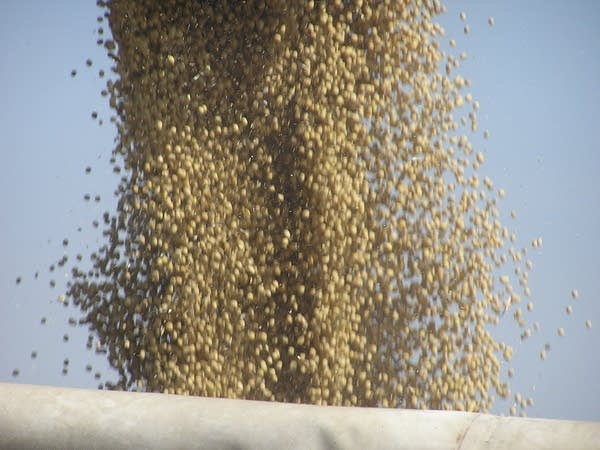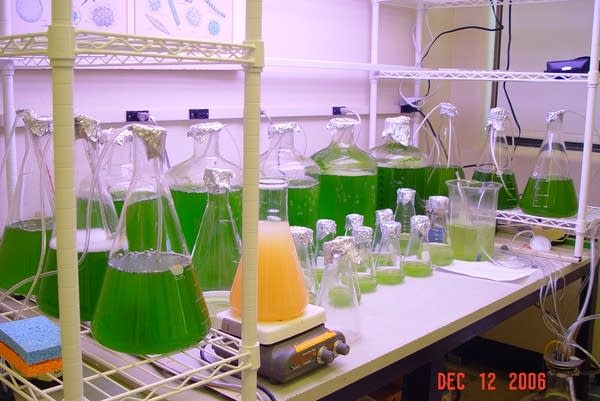Biodiesel backers seek same boost as ethanol

Minnesota's ethanol mandate and subsidies are credited with giving a boost to Minnesota's corn farmers.
Rep. Al Juhnke, DFL-Willmar, wants to see that process repeated with biodiesel, which is mostly made with soybeans. Minnesota already has three biodiesel plants, and more are on the drawing boards.
"What this does is actually give a signal to industry that they should move ahead, and develop more infrastructure for this product," Juhnke says.
Right now, trucks in Minnesota burn a blend that contains two-percent biodiesel. Juhnke's bill would increase that to 20-percent by 2015. In the winter months, the requirement drops back to five-percent, until problems with cold weather are worked out. At least half of the biodiesel would be produced in Minnesota.
Create a More Connected Minnesota
MPR News is your trusted resource for the news you need. With your support, MPR News brings accessible, courageous journalism and authentic conversation to everyone - free of paywalls and barriers. Your gift makes a difference.
Juhnke says if biodiesel follows in ethanol's footsteps, it will be good for rural Minnesota.

"You know, there are 17 ethanol plants right now, each of them averaging probably 35 or 40 really-good paying jobs in these communities, and so that money spins and turns in the local economies out here."
Helping farmers is one thing, but there are more important reasons to move quickly on biodiesel, according to Don Arnosti. Arnosti works on biofuels issues at the Institute for Agriculture and Trade Policy, a Minnesota non-profit.
Replacing petroleum fuel with biodiesel will help reduce greenhouse gas emissions, he says. But it will take a lot of biodiesel to make a difference in addressing global warming.
"We've embarked on a track of -- call it first generation biofuels -- that will never arrive at the end point that the latest science is indicating we need, and that's somewhere between 80 and 100 percent reduction of carbon emissions in the next 50 years."
Corn ethanol and soy diesel can become entrenched industries, and Arnosti worries that won't leave room for research into new technologies and new fuels.
Just like with ethanol, the idea is to find a source of energy that is truly sustainable, Arnosti says. He's excited about research with algae.

Who knew algae can produce oils that can be burned as fuel?
"We have found some algae species that grow very fast and also have reasonable oil content, over 20% for example," says Roger Ruan, a researcher at the University of Minnesota who directs the Center for Biorefining.
Ruan is experimenting with algae in Twin Cities wastewater. His algae are 20% oil, and that's about what soybeans are.
There are a lot of advantages to working with algae in wastewater treatment plants, Ruan says.
"Usually they have some kind of algae already in there, and they actually have to remove those before they let the treated water out into rivers and so on. And the key thing is that's a waste resource, it hasn't been utilized."
As they grow, algae use up the nutrients in the wastewater, and they might even be able to use up carbon dioxide, a greenhouse gas. Best of all, wastewater treatment plants could provide a concentrated source of algae for biofuel, compared to other sources like agricultural waste, or perennial grasses, which have to be transported longer distances.
The bill to increase the biodiesel mandate includes $500,000 for the research into algae as fuel.

